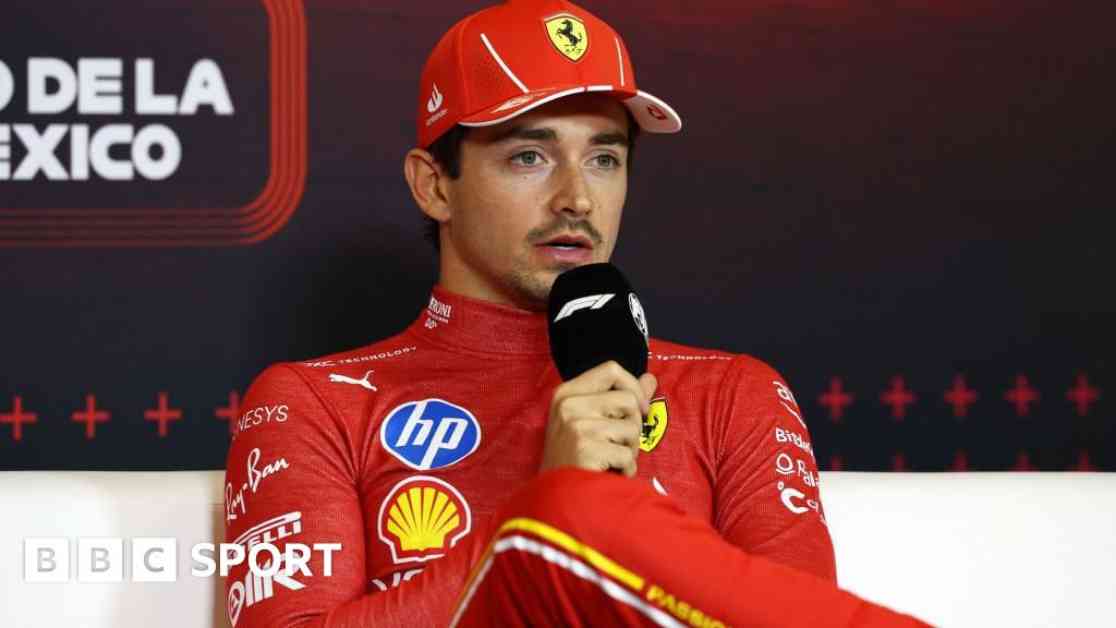Ferrari driver Charles Leclerc has been fined 10,000 euros for swearing during a news conference after the Mexico City Grand Prix. Half of the fine is suspended as long as he doesn’t repeat the offense in the next 12 months. This punishment is less severe compared to the penalty Max Verstappen received for the same offense in Singapore.
The stewards at the Sao Paulo Grand Prix, who made the decision regarding Leclerc, took into account his immediate apology as a mitigating factor. Leclerc used explicit language in response to a question about a critical moment during the race when he almost lost control of his car while defending against Lando Norris from McLaren. This incident ultimately cost him second place in the race.
Interestingly, Max Verstappen had highlighted the inconsistency in the penalties between his case in Singapore and Leclerc’s in Mexico. Verstappen had expressed his dissatisfaction with the punishment during official news conferences, limiting his responses deliberately and then providing more detailed answers to journalists outside the FIA press conference room.
The drivers’ frustration with the situation was further fueled by FIA president Mohammed Ben Sulayem’s comments about wanting to avoid broadcasting swearing on television. The drivers felt that the radio messages captured the true essence of their emotions, and any offensive language was already censored.
Despite this controversy, F1’s commercial rights holder has confirmed that there will be no changes to the current broadcasting approach. George Russell, a director of the Grand Prix Drivers’ Association, had mentioned plans for an open letter addressing the issue, but it has not been released yet.
The situation involving Leclerc’s fine for swearing sheds light on the ongoing discussions within the sport about the drivers’ freedom of expression and the balance between authenticity and public image. As the drivers navigate these conversations, it remains to be seen how future incidents involving explicit language will be handled and whether there will be further developments in the approach to broadcasting such content.




